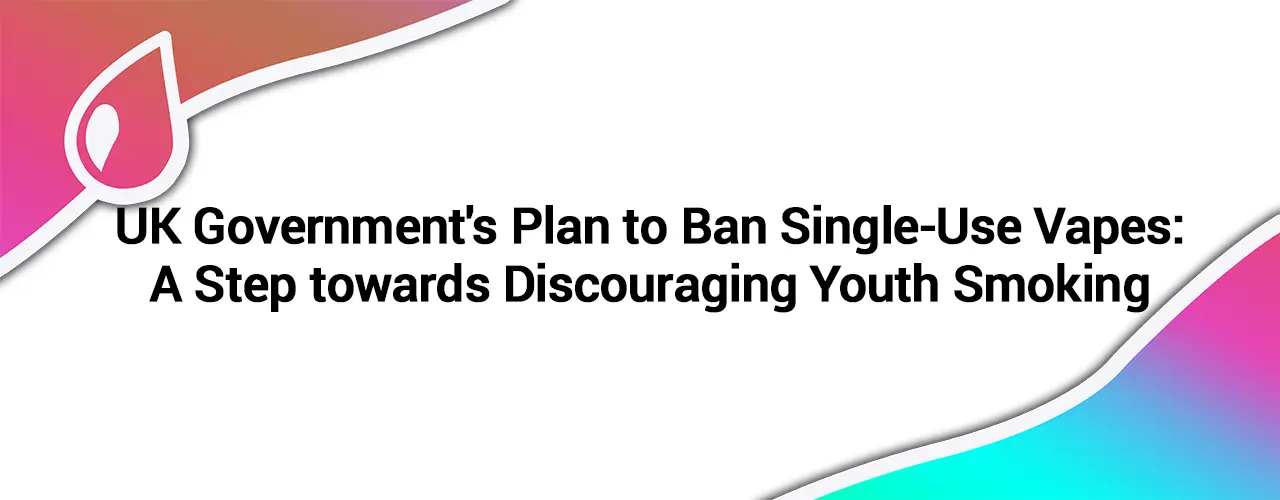UK Government’s Plan to Ban Single-Use Vapes: A Step towards Discouraging Youth Smoking
In a bid to tackle the rising concerns of youth smoking, the UK government has recently announced its intention to implement a ban on single-use vapes. This decision comes amidst growing apprehensions regarding the accessibility and appeal of vaping products to adolescents. The move underscores a proactive approach aimed at safeguarding the health and well-being of the younger population.
According to a report by The Telegraph dated January 25, 2024, the UK government is poised to introduce measures aimed at curbing the use of disposable vapes. With a particular focus on deterring underage individuals from taking up smoking. Citing health concerns and the potential gateway effect of vaping on traditional cigarette use, policymakers are set to impose restrictions on these readily available and often enticing products.
The article highlights the government’s recognition of the evolving landscape of nicotine consumption. Where disposable vapes have emerged as a convenient and appealing option, especially among younger demographics. By targeting single-use devices, authorities aim to disrupt the ease of access and curb the normalization of vaping among adolescents. Thereby stemming the tide of potential health consequences associated with nicotine addiction.
Quoting Health Secretary, Dr. Emily Stevens, the article emphasizes the importance of decisive action in safeguarding public health, particularly among vulnerable groups such as children and teenagers. Dr. Stevens reaffirms the government’s commitment to prioritizing preventative measures and evidence-based interventions to address the multifaceted challenges posed by smoking and vaping.
The proposed ban on single-use vapes aligns with broader public health initiatives aimed at reducing smoking prevalence and associated harms. By discouraging the use of disposable vaping devices, policymakers aim to mitigate the risk of nicotine dependence, respiratory illnesses, and long-term health implications. Particularly among impressionable youth.
Critics of the Plan to Ban
Critics, however, raise concerns about the potential impact of such regulations on adult smokers seeking harm reduction alternatives. While acknowledging the need to protect young people from the allure of nicotine products, some argue for a balanced approach that preserves access to vaping as a potentially less harmful alternative for adult smokers looking to quit traditional cigarettes.
Nevertheless, proponents of the ban argue that the overarching goal is to strike a delicate balance between public health imperatives and individual liberties. By restricting the availability of single-use vapes, authorities aim to disrupt the cycle of nicotine initiation among adolescents. While simultaneously promoting harm reduction strategies and smoking cessation support for adult smokers.
The article underscores the importance of comprehensive tobacco control policies that address the complex interplay between regulatory measures, public education campaigns, and targeted interventions. In championing the ban on disposable vapes, the UK government signals its commitment to proactively addressing the evolving challenges of nicotine addiction and youth smoking. Thereby paving the way for a healthier and smoke-free future.
Conclusion
In conclusion, the UK government’s plan to ban single-use vapes represents a pivotal step towards discouraging youth smoking and safeguarding public health. By prioritizing preventative measures and evidence-based interventions, policymakers demonstrate their commitment to addressing the nuanced dynamics of nicotine consumption while fostering a culture of health and well-being for future generations.

